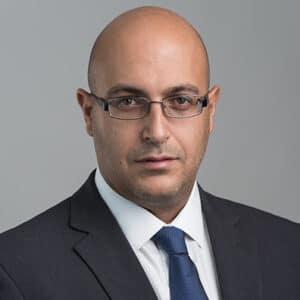Recent filings highlight a developing conflict over ovalbumin production via precision fermentation, involving Onego Bio, its parent research center VTT, and The Every Company.
US Court Filing and Claims
According to Onego Bio’s complaint filed in the US District Court for the Western District of Wisconsin (Case # 3:25-cv-00761), the company is seeking a declaratory judgment of invalidity, unenforceability, and non-infringement regarding The Every Company’s US patent 12,096,784. Onego claims that Every demanded “unwarranted patent licensing fees” and engaged in “tortious interference” by telling third parties, including potential investors, that Onego required a license.
The same filing alleges that Every’s proposals for resolution were “objectively unreasonable” and included a proposed merger at a severe devaluation, which Onego claims indicated an interest primarily in Onego’s “commercially successful technology.”
Patent Misuse Allegations
The same filing further asserts that Every’s patent misuse extended beyond valid rights, and that “Every has attempted to patent technologies that were well-known by VTT before the ‘784 patent’s earliest claimed priority date of July 11, 2019.” Onego argues that the patent provides no substantive instructions for producing ovalbumin with Trichoderma reesei, the fungus used in Onego’s system.
European Patent Office Opposition
Parallel to this, VTT Technical Research Centre of Finland has filed an opposition to Every’s European patent (EP 4017287) at the European Patent Office (EPO). VTT states that its expertise in engineering Trichoderma reesei to express ovalbumin was disclosed publicly before Every filed the patent in 2020. It cites several presentations, including a 2019 talk by Dr. Dilek Ercili-Cura at the IFT show in New Orleans, which described the recombinant expression of ovalbumin in Trichoderma.
According to VTT’s opposition, Every’s patent “discloses at best the production of unnatural modified ovalbumin in Pichia pastoris [yeast]” and is “not applicable to ovalbumin produced in other host organisms such as Trichoderma reesei.”
The Patents at Issue
Both Onego and VTT therefore argue that the patents at issue are invalid and unenforceable. The Every Company, meanwhile, has previously described its ‘784 US patent as “foundational,” claiming that its scope included “production methods utilizing a range of yeast and fungal systems such as Pichia, Trichoderma, Saccharomyces, and Aspergillus.”
As reported, The Every Company has not yet responded publicly to requests for comment on either the US litigation or the European opposition.
Why This Matters
Patent disputes in food-tech and alternative proteins can influence investor confidence, shape R&D strategies, and impact commercialization timelines. The outcome here is closely watched not only by the parties involved but also by other players navigating IP in precision fermentation and cellular agriculture, many of whom rely on specialized IP solutions for startups to build robust patent strategies.
To navigate complex patent landscapes and avoid costly disputes, many startups and investors choose to bring in a fractional IP director — ensuring strategy, risk management, and freedom-to-operate are handled proactively rather than reactively.






